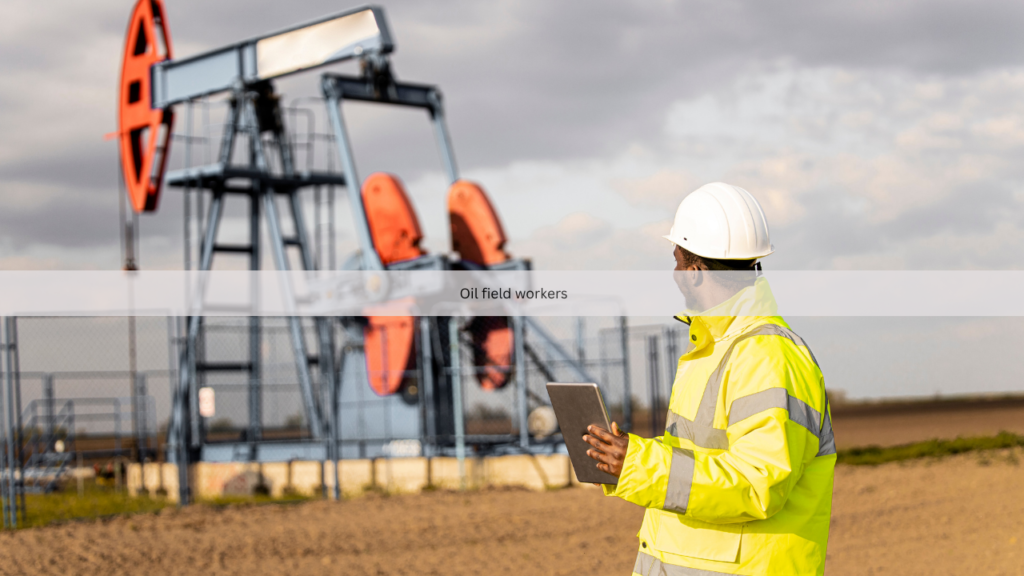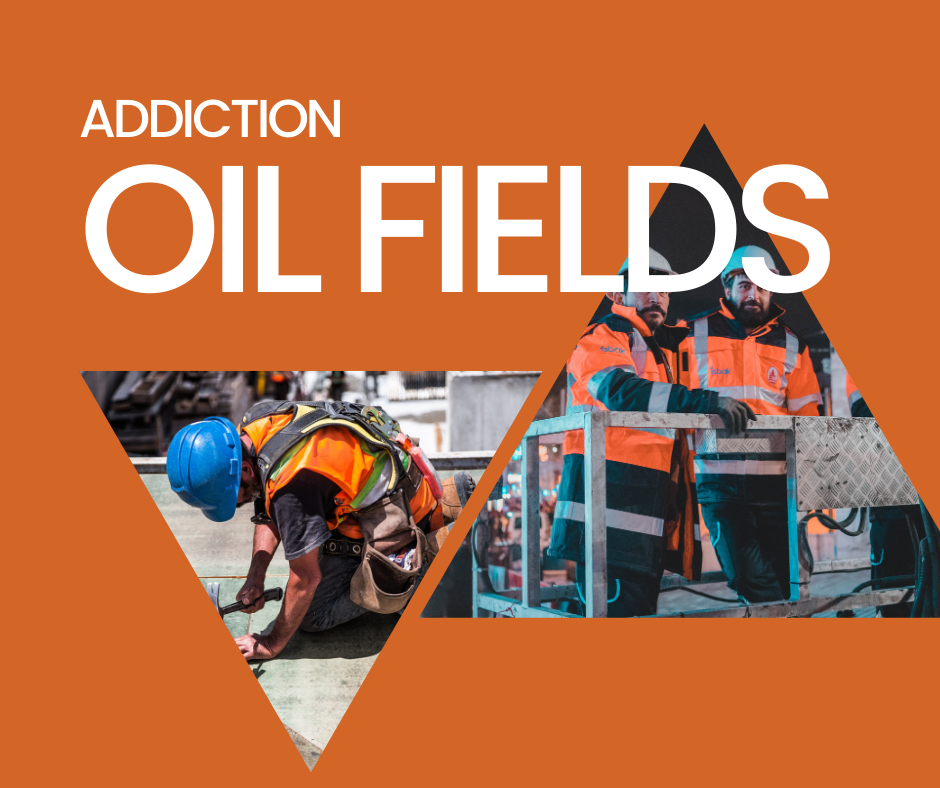
In recent years, the oil industry has offered unprecedented economic opportunities, especially in regions experiencing a surge in drilling activities. Known for high wages and steady employment, oilfield jobs attract thousands from across the country seeking financial security. Yet, beneath this booming industry lies a lesser-known crisis: addiction. The high salaries, combined with the intense pressures of oilfield work and a pervasive culture of substance use, have created fertile ground for addiction, impacting not only the workers but also their families and communities.
The Allure and the Pressure
For many, working in the oil industry represents a rare chance to achieve financial stability. With jobs that can pay double the national average, oilfields in areas like Texas’s Permian Basin or North Dakota’s Bakken formation draw workers from all backgrounds. The allure of “big money” is hard to resist, especially for those without higher education or other high-paying career options.
However, with these financial rewards comes a unique set of pressures. Oilfield jobs are not just physically demanding but mentally taxing as well. Workers often endure long shifts—sometimes 12 to 14 hours—under challenging and hazardous conditions. This work is high-stakes and high-speed, with little room for error. Employees are constantly pushed to meet demanding production targets, as the industry operates on a boom-and-bust cycle where job stability is never fully assured. Combined with the physical pain of hard labor, many workers turn to alcohol, painkillers, and stimulants as a way to cope, seeking both physical relief and emotional escape from their grueling work lives.
A Culture of Substance Use
In oilfield camps, where workers spend weeks or months away from home, the use of alcohol and other substances is often normalized. For some, drinking or using drugs is seen as a rite of passage, a way to bond with coworkers or to relax after a hard day. In remote areas with few recreational activities, alcohol is an easy, accessible outlet.
However, the addiction problem goes far beyond alcohol. The physically punishing nature of oilfield work leads many workers to use opioids or prescription painkillers to manage chronic pain or injuries. As tolerance builds, some turn to illegal drugs like heroin or methamphetamine to sustain the intense pace demanded by their jobs. Unfortunately, this cycle of substance use and dependency can spiral into addiction, with long-lasting consequences.
The Toll on Families and Communities
The addiction crisis in the oilfield has repercussions that extend far beyond the individual worker. Families are affected as addiction strains relationships, damages financial stability, and leads to neglect and emotional distance. For children and spouses, watching a loved one struggle with addiction can lead to anxiety, stress, and even trauma. Furthermore, the financial drain of supporting a substance habit can erode the very stability that workers initially sought through these high-paying jobs.
Communities near oil fields feel the impact as well. Addiction brings an increase in crime rates, homelessness, and a higher demand for healthcare services, often putting a strain on local resources. Small towns that once welcomed the economic growth from the oil boom may find themselves grappling with the fallout of widespread substance abuse among their workforce.
Toward Solutions
Addressing addiction in the oil industry requires collaboration between employers, healthcare providers, and government agencies. Employers need to adopt proactive measures, such as implementing substance use awareness programs, providing access to mental health and addiction treatment, and creating a supportive environment where workers feel they can seek help without stigma.
On a broader scale, policymakers and community leaders must work together to address the social and economic factors contributing to this crisis. Offering more accessible mental health resources, funding addiction recovery programs, and building stronger support networks for workers in these high-pressure jobs can help alleviate some of the underlying causes of addiction in the oilfield.
The allure of high salaries may fuel the oil industry, but the price of unchecked addiction reveals a more profound crisis. By recognizing and addressing this issue, society can protect not only the wellbeing of oilfield workers but also the health and resilience of the communities they call home.




 In the dynamic world of oil exploration, where fortunes can be made and lost in the blink of an eye, the toll of big money and even bigger addictions is a prevalent but often overlooked reality. The allure of wealth, the high-stakes nature of the industry, and the demanding work environment create a breeding ground for various addictions that can have far-reaching consequences. In this article, we delve into the complex intersection of big money and addiction in the realm of oil exploration.
In the dynamic world of oil exploration, where fortunes can be made and lost in the blink of an eye, the toll of big money and even bigger addictions is a prevalent but often overlooked reality. The allure of wealth, the high-stakes nature of the industry, and the demanding work environment create a breeding ground for various addictions that can have far-reaching consequences. In this article, we delve into the complex intersection of big money and addiction in the realm of oil exploration. The oil industry, often synonymous with prosperity and economic growth, also harbors a darker reality – the nexus of wealth and addiction. The allure of big money in the oil field can create an environment where individuals may find themselves grappling with various forms of addiction. This article explores the complex interplay between wealth and addiction in the oil industry, shedding light on the challenges faced by individuals working in this high-stakes sector.
The oil industry, often synonymous with prosperity and economic growth, also harbors a darker reality – the nexus of wealth and addiction. The allure of big money in the oil field can create an environment where individuals may find themselves grappling with various forms of addiction. This article explores the complex interplay between wealth and addiction in the oil industry, shedding light on the challenges faced by individuals working in this high-stakes sector.

